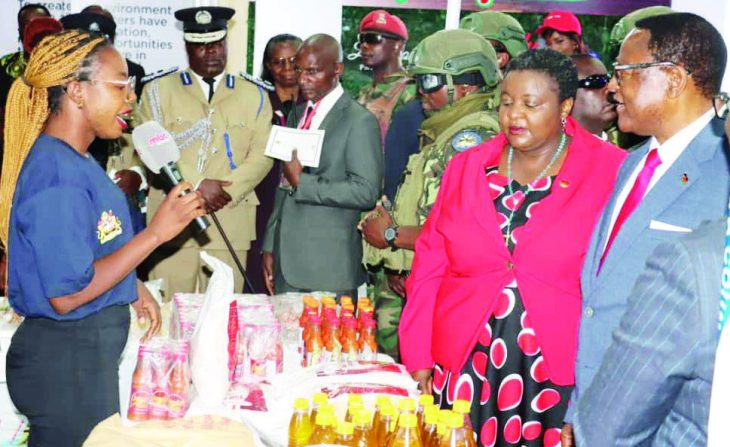
Unlock Malawi’s K1 Trillion Opportunity: A Game Changer for Local Businesses
Key Business Points
- The Malawian government has committed to investing at least K1 trillion in local businesses between 2026 and 2030, with over K300 billion already disbursed to support youth and women entrepreneurs.
- The government has secured international markets for Malawian agricultural products in countries such as China, the United Arab Emirates, India, and Europe, providing new export opportunities for local businesses.
- To support the growth of small and medium-sized enterprises (SMEs), the government is working to transform the National Economic Empowerment Fund (NEEF) into a business development bank, with the support of the African Development Bank (AFDB).
The Malawian government has reaffirmed its commitment to promoting local businesses, with President Lazarus Chakwera pledging to invest at least K1 trillion in the sector between 2026 and 2030. This move is expected to boost economic growth and create new opportunities for entrepreneurs and businesses across the country. Chakwera’s announcement is part of the government’s broader strategy to promote private sector-led industrialisation and economic transformation.
At the opening of the 35th International Trade Fair in Blantyre, Chakwera also announced that the government had already secured over K600 billion to promote agricultural entrepreneurship. This investment is expected to support the growth of Malawian agricultural products, which are now being exported to countries such as China, the United Arab Emirates, India, and Europe. This development provides new export opportunities for local businesses and is expected to contribute to the country’s economic development.
The International Trade Fair, organised by the Malawi Confederation of Chambers of Commerce and Industry (MCCCI), brought together exhibitors from Malawi, Tanzania, Mozambique, Zimbabwe, Egypt, Ethiopia, and Zambia. The event was held under the theme ‘Promoting Economic Transformation through Private Sector-Led Industrialisation’, reflecting the government’s focus on supporting the growth of local businesses.
MCCCI President Wesley Phiri recommended a policy review to enable growth and ensure that programmes align with the Malawi 2063 development aspirations. He also called for an update of the 2016 Industrialisation Policy to attract local and foreign investments, especially for startups facing tax and operational challenges in the country. This recommendation highlights the need for the government to create a more conducive business environment to support the growth of SMEs.
Industry and Trade Minister Vitumbiko Mumba praised the resilience of young businesses, who he said were able to turn the country’s economic hardships into business opportunities. National Smallholder Farmers Association of Malawi Chief Executive Officer Betty Chinyamunyamu expressed gratitude for the recognition of their association as the best exhibitor, attributing their success to investments in quality products and services. This success story demonstrates the potential for Malawian businesses to thrive, even in challenging economic conditions.
What are your thoughts on this business development? Share your insights and remember to follow us on Facebook and Twitter for the latest Malawi business news and opportunities. Visit us daily for comprehensive coverage of Malawi’s business landscape.
- Malawi’s Tourism Boom: A K1 Trillion Opportunity for Business Growth! - March 4, 2026
- Bad Loans Fall: Positive Shift Signals Economic Recovery - March 3, 2026
- Bank Levy Deductions Spark Public Outcry and Economic Debate in Malawi - March 3, 2026
